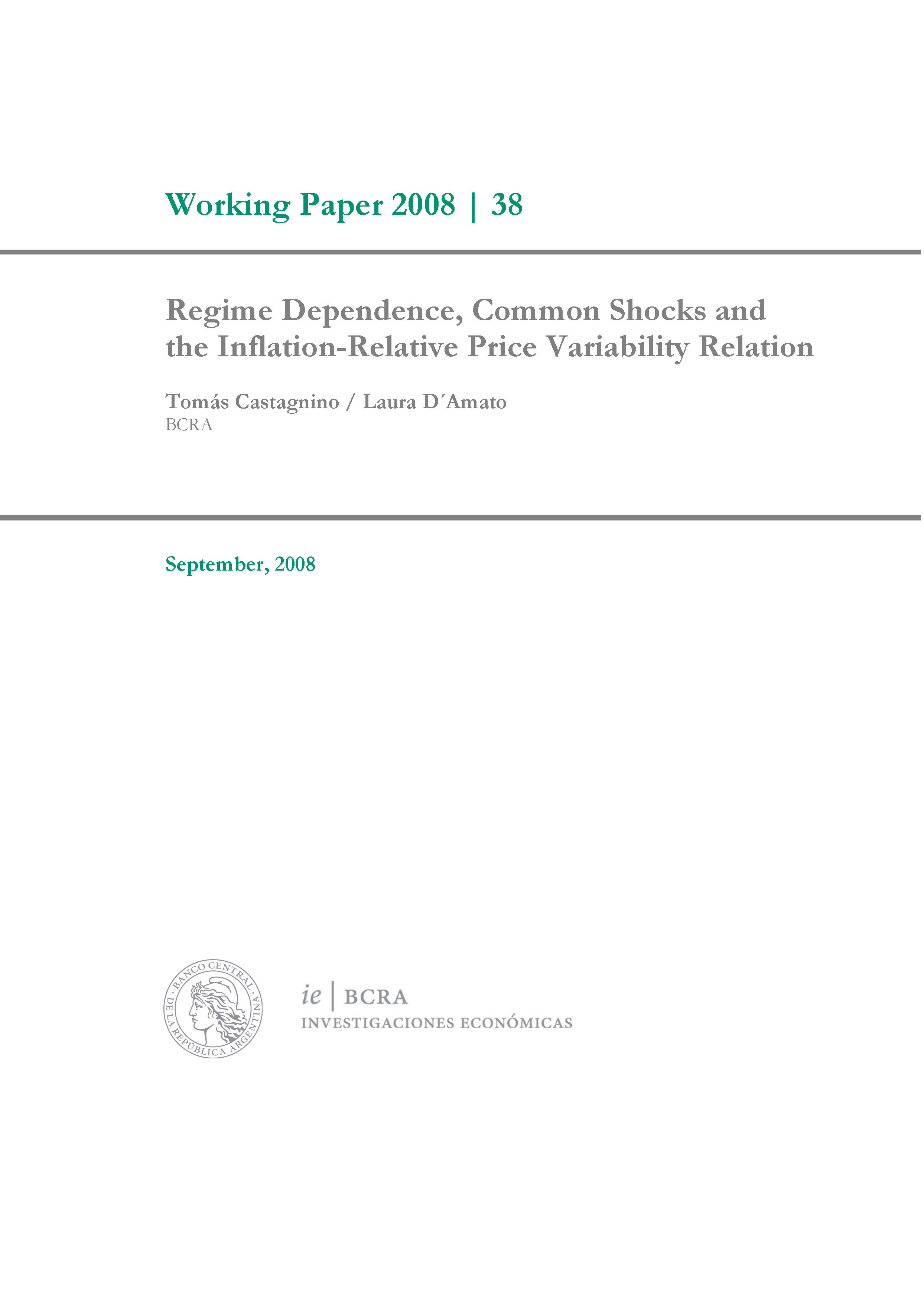Regime Dependence, Common Shocks and the Inflation-Relative Price Variability Relation
Working papers | 2008 | N 38
Keywords:
Inflation, Frequency domain analysis, Regime, Common shocks, Monetary policy, Relative pricesAbstract
Using frequency domain techniques to separate short and long run dynamics and decomposing inflation into its common and idiosyncratic components, we study the regime dependence of the inflation-RPV relation in Argentina and the US. Under high inflation, strong long-run comovement between RPV and inflation is found for both economies, that extends to the short run adding extra noise to that usually present at high frequencies. High inflation also leads to idiosyncratic movements in prices that do not cancel out, adding persistence to the process. When inflation is low, no long-run interaction between variables is expected. This is the case of the US, even though supply shocks are comparable to those of the seventies when trend inflation was high. Surprisingly, the findings for Argentina do not support the a-priori as both variables show significant long term comovement. Studying disaggregate price responses to common shocks helps to understand sectoral patterns behind these dynamics. Our results suggest that long run variability in inflation can be induced, not only by high trend inflation, but also by policy stabilization efforts based on relative price adjustments.
JEL classification: C22, C43, E31, E52


